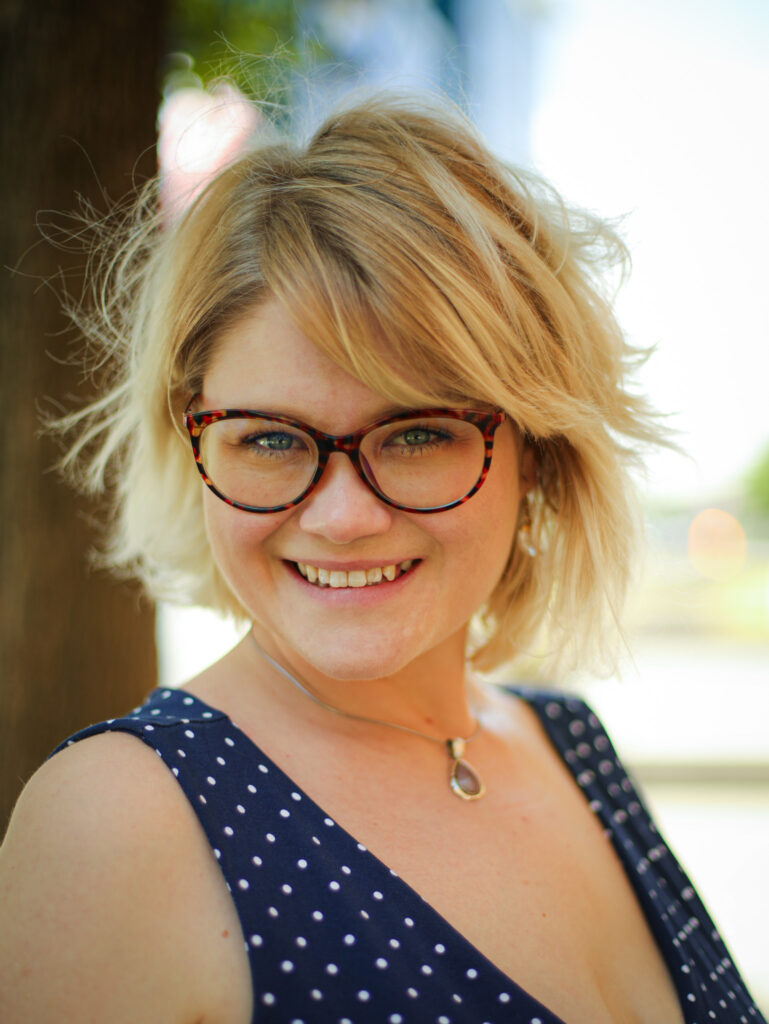What DH Means to Me: Dani Willcutt
Digital Humanities (DH) has come to mean a lot to me. In 2018 – which is when my introduction to DH occurred – it was a graduate certificate that I thought would make an interesting addition to my curriculum vitae. When I made the decision to join the Digital Humanities Graduate Certificate at MSU, I had no idea that it was going to completely change my career trajectory. I had never even considered myself a technical person (heck, I still use a paper planner). By the time I was halfway through my first year as a Cultural Heritage Informatics (CHI) Fellow, I recognized that DH was something I might want to continue doing in the future. I saw it as a way of creating projects that reach wider audiences and require creative problem solving than just writing about research does not.

I appreciate the emphasis on collaboration. Academics can so often become isolated within their own research projects, which, for me at least, can create an echo chamber in which I am unable to gain feedback and new insight that outsider perspectives can provide. A second but related aspect I appreciate about DH is the interdisciplinary nature which allows for more opportunities to learn from each other gaining insights you can only get from interdisciplinary discussion. My own research tends to be interdisciplinary and so I especially benefited from collaborating with DH community members coming from backgrounds in fields like Anthropology, Archaeology, English, Urban Planning, and Linguistics. This spirit of collaboration goes beyond MSU. One example would be the #DHMakes community that I learned at the 2024 Association for Digital Humanities Organizations (ADHO) Conference. It was an entire group of like-minded scholars who wanted to bring their creative art and crafting ideas into conversation with DH tools and methods.
DH also means being able to do meaningful work. For example, I work as the Digital Humanities Lead Developer for the Roberson Project on Slavery Race, and Reconciliation at the University of the South in Sewanee, Tennessee. My first project on the team was building Honoris Causa: Sewanee, The Lost Cause, and Honorary Degrees, a website displaying the research of our Public Historian, Maia Council, on the honorary degrees awarded to former and unapologetic Confederates. They were celebrated in 1957 at the height of the Civil Rights Era. I have also developed a site to tell the live and up-to-date story of Sewanee Praises. This project is a community-focused initiative between the University of the South, Virginia Tech, and Virginia Commonwealth University to develop a monument in the area that was once the heart of Sewanee’s Black Community. Finally, I am developing a 3D map to display land leases of black and white Sewanee residents in the early twentieth century. Working with the Roberson Project has meant building public-facing digital products that are accessible to current, former, and future Sewanee residents and their families. What is more, these projects make interventions in recognizing and chipping away at the legacy of white supremacy in the South.
Even when working with serious material and content, DH, to me, means being able to have fun with my work. This is because of the tinkering and experimentation that is required of DH practitioners as we constantly have to problem solve something. Part of what I enjoy the most about working with digital tools, methods, and platforms is that they are always evolving and that there is always something new to consider and experiment with. For example, I am working on a project called Menu Made America for Matrix Center for Digital Humanities and Social Science here at MSU. The project is a culmination of a DH Summer Seed Grant and a chance encounter with a collection of menus from the late CEO of Crown Publishing/Crown Menus. The collection roughly covers the years 1959 to 2008 and focuses mostly on Michigan, but goes beyond and throughout the United States. We have been vetting, cataloging, and digitizing the menus and I am going to build an Omeka-S database in the Spring. Our goal is to have the collection connect to other menu collections and to set a standard for vocabularies related to restaurants and menus as source material.
Being a part of the DH community has opened up doors for me I never even knew existed. DH has made me realize how much I enjoy teaching, but that I enjoy teaching skills and working with others on their projects more than teaching in a traditional classroom setting. Thanks to my experience as a Graduate Assistant in the Lab for Education in and Advancement of Digital Research (LEADR), I am the new Training Specialist for Omeka, replacing fellow LEADR, CHI, and MSU DH alum, Zach Francis. I will be teaching intensive and one-off workshops to scholars and researchers from all over the world. DH means being able to continue thinking creatively about how to present my own research and how to collaborate with other scholars on scholarly and public-facing projects.
–Dr. Dani M. Willcutt (Department of History)
Graduate Research Assistant, Matrix Center for Digital Humanities & Social Sciences
Digital Humanities Lead Developer, Roberson Project for Slavery, Race & Reconciliation
Editor, H-Food-Studies
The following piece was originally created for the DH@MSU Newsletter and was featured in the November 11, 2024 issue. Subscribe to the Newsletter here.